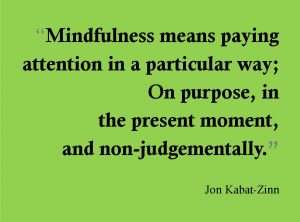Whether you are a junior or senior player, maintaining your mindset for Squash is essential as a positive mind can make a difference in having a great game.
In this modern society, not only exercise can help maintain a positive lifestyle thus in Squash whether you are a recreational or a competitive player – exercise is the first part of having a positive mindset.
The pre-match mindset with exercise
As an avid exercise enthusiast, you must begin with exercise. Now, the best exercises to be successful on the squash court; now for the serious or even the recreational squash player there are a number of exercises, indoor or outdoor that are vital to having a great game and preventing injury:
Strength
- Lunges: with a game of Squash, you will spend a lot of time moving forward to take a shot, hence this exercise will help strengthen your quadriceps, gluteal muscles and hamstrings – thus must be included in your workout in the lead-up to match as it the most crucial exercise that needs to be carried out in fitness programme. Reps: 8 (each leg)/Sets: 3
- Bench Press: now, you would be thinking, how can bench press help with my squash game, as it is mainly for bodybuilders who perform this exercise? The myth about Bench Press exercise is only for bodybuilders is wrong, as a squash player this exercise can help strengthen your muscles in your arms and chest – as a result, you achieve the perfect backhand smash or forehand smash, thus your opponent will be unable to return the shot. Reps: 12/Sets: 4 (WARNING: do not lift any more than 15kg in the early stages of your training, gradually build up to heavier weights)
- Leg Press: This exercise technique is the most essential part of your pre-squash match exercise routine; Why? It is important to have a strong overall lower body strength. Like the Lunges, this exercise also targets your quadriceps, hamstrings, gluteal muscles, and calf muscles. Reps: 8/Sets: 3
- Plank: there has always been this myth sit-ups are good for a flat stomach, but the plank exercise is excellent for strengthening your core – your abdominal muscles. For this exercise, you would need to perform a push-up, but instead, place your elbows on the floor with your fist clenched. Make sure your bottom is not sticking in the air. Reps: Six times and hold that position for 45 secs.
Endurance
You can expect to do a lot of running in Squash, even if your opponent is a novice playing a recreational game or an inter-club match. Hence, it is important that you build a strong anaerobic capability, which includes stamina.
For Squash players, the most useful anaerobic exercises to help improve their endurance are:
- Jog slowly for approximately 50 metres
- Sprint as fast as you can for approximately 150 metres.
- Walk slowly for 50 metres.
- Jog for 100 metres at a relatively slow pace.
- Sprint (or run as fast as you can) for 300 metres.
- Walk for 100 metres, then increase to 200 metres and gradually 600 metres.
As a recreational player, you could easily incorporate some of these techniques into your fitness routine, say on day 3 of your weekly exercise programme. Furthermore, if you and your family enjoy playing squash you can do these exercises on a weekend together time.
Combating stress before and after a match
As well, to gym-based exercises, Like most professional sports athletes, there is also making sure your mind is positive, hence, there is a psychological aspect of your squash game – to combat this comes, Yoga is a great form of exercise that can help moments before a crucial game or match.
To ease your stress level before and after a Squash with a positive mental state, reducing any negative thoughts, the best technique to handle this is Mindfulness.
What is mindfulness?

Adapted from Jon Kabat-Zinn
Using mindfulness as part of your maintaining a positive mindset for squash can help you as a player accomplish the following:
- Enhance the sensory focus on a particular area of the body.
- Helps an athlete overcome persistent competing stimuli such as negative thoughts or pain.
Furthermore, the three A’s of mindfulness can help any squash athlete or recreational player with their game on course by switching their mental direction in the following ways:
- Acceptance: knowing at the moment that the self-dialogue is negative and acknowledging this to oneself, thus ending the in-your-head argument.
- Awareness: taking a moment to take a deep breath and refocus.
- Action: taking a specific action that is practised in training to switch thoughts from negative to neutral.
Now, this may sound like something that senior players would do, hell US sports athletes such as LeBron James are using mindfulness to combat stress.
Furthermore, mindfulness is rapidly becoming a great meditation tool for young people and it has proven to be effective for children of all ages.
Squash to music
If going to the gym is not your thing or need that extra motivation, then how about practising your squash moves to music? Check out this video Nicol David, female world no.1 squash, practising a few squash moves to I Am Better by R&B Queen Missy Elliot:
Putting it all together
To conclude, like its racquets cousins, squash has always been a sport that is great for exercise and very sociable, plus young people can find enjoyment from playing as well. For junior squash players, these exercises can be adapted to indoor activities and mindfulness is becoming popular amongst young people, especially in schools.
Overall, playing Squash aligned with the right mindset and a structured exercise plan – a mix of cardiovascular and resistance exercises will not only make you feel good but improve your wellbeing and reduce any future health issues, it can help keep your mind sharp.

